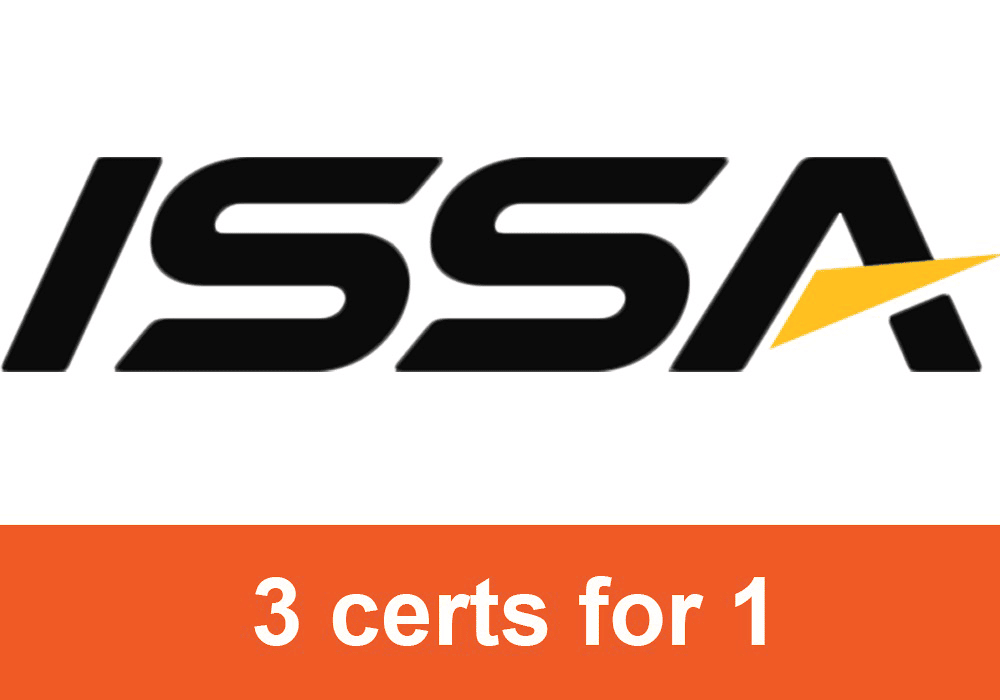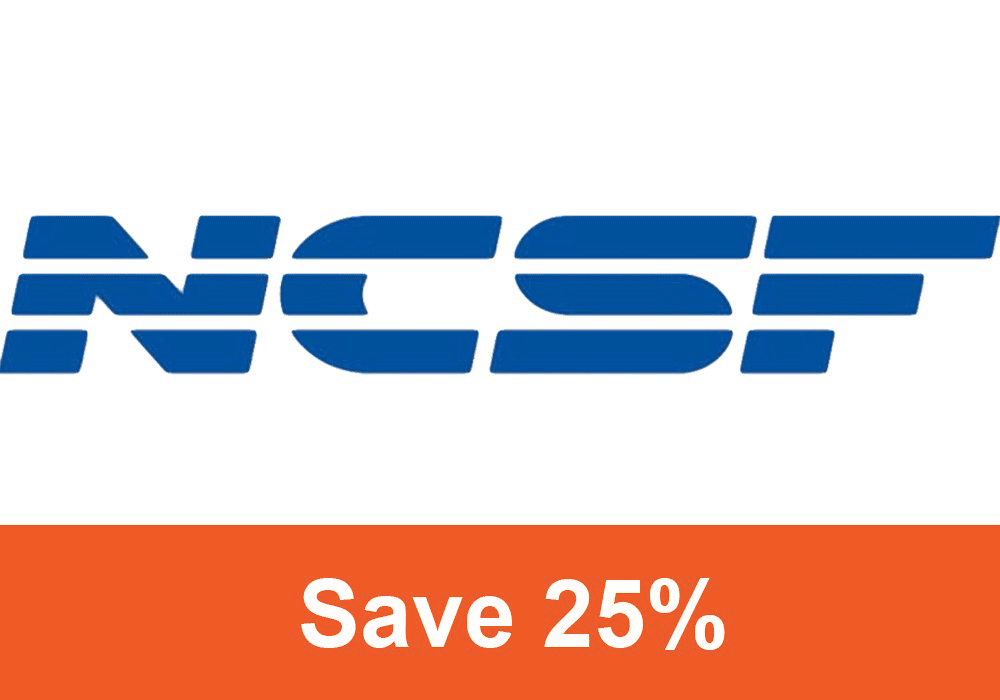
Do you have a passion for strength and conditioning?
Are you a leader?
If this sounds just like you, then perhaps the “Head Strength and Conditioning Coach” job title would suit you well!
Most likely, you are interested in the strength and conditioning coach job and learning more about the general job description.
Upon reading this article, you will cover in-depth information on the following:
- Strength conditioning coach job description
- Duties and responsibilities
- Things to avoid
- Qualifications
- Core skills
- Education requirements
- Continuing education
- Experience requirements
- Places you may work
- Employment
Okay, let’s explore!
Exclusive TA Offers |
||
Most Popular Cert
| Great Option
| Best Cert for you? 
|
Good Option
| Good Option
| Good Option
|
Strength and Conditioning Coach Job Description
So, before we talk about what a strength and conditioning coach does, what even is a strength and conditioning coach?
A strength and conditioning coach is a sports medicine professional who prescribes specific training programs for advanced skills, sports performance, and athlete records.
These conditioning programs are designed for athletes, student-athletes, or professional athletic teams and are mostly geared toward a specific sport.
Coaches may also be referred to as head coaches.
Note that strength and conditioning coaches are often members of the National Collegiate Athletic Association (NCAA).
What is the NCAA?
NCAA stands for the National Collegiate Athletic Association.
It is a member-led organization made up of sports medicine professionals dedicated to the enhancement of sports performance and the general well-being of student-athletes.
This is often done by utilizing a combination of strength training and aerobics.
In prescribing aerobics, strength training, and conditioning, certified strength and conditioning coaches may determine the type, duration, and frequency of each exercise.
An insightful piece: The Best Strength and Conditioning Certifications
For example, when coaches prescribe a strength training program, they determine the type of exercise, the volume, the rest intervals, the frequency, and also the intensity.
This is to ensure proper techniques and progressions among athletes.
Furthermore, not only do strength and conditioning coaches prescribe aerobics and weight training programs, but they may additionally prescribe stretching programs as well.
These stretching programs are necessary to improve athletes’ flexibility, mobility, and agility.
What about related fields?
Some examples of related fields include:
- Athletic trainers
- Sports coaches
- Assistant coaches
- Personal trainers
- Athletic directors
How do strength and conditioning coaches differ from other sports medicine professionals?
Here’s how:
Athletic trainers emphasize injury, whereas strength and conditioning coaches emphasize improving sports performance.
Even though strength and conditioning coaches may help prevent athletic injuries, their primary focus is on helping athletes develop proper techniques within their specific sport.
Similarly, sports coaches or athletic coaches instruct teams on the safety, rules regulations, and techniques of their specific sport.
To be a sports coach, you need at least a high school diploma.
You must also be able to instruct coaches and others within a high school athletic department.
Note that to work as a high school strength and conditioning coach, you are required to hold a valid teaching license or substitute teaching license in your state.
Assistant coaches support the head coaches and often aspire to be head coaches.
They often obtain internships that require shadowing the head coach.
Sample job duties for assistant coaches include maintaining the weight room and equipment and providing administrative duties as well.
They create schedules, supervise training-related sessions, and organize athletic events.
Then, unlike personal trainers, who may help all types of people achieve lifelong fitness, head coaches help solely athletes.
They can be student-athletes, professional athletic teams, or even tactical athletes, such as military and police officers.
And finally, athletic directors, also called sports directors, primarily operate athletic programs and sports teams.
A sample job description for athletic directors includes preparing athletic department budgets, hiring and training coaching staff, and designing strength conditioning programs.
However, most athletic departments lack proper management, which makes your job as an athletic director crucial.
Athlete and staff strength are equally important.
We want strong teams – both in the game and behind the scenes!
Learn more on: How To Become A Personal Trainer
Duties and Responsibilities
You now have a brief understanding of the strength and conditioning coach job description.
In this section, you will cover exactly what strength and conditioning coaches do.
You will learn their primary job duties and responsibilities, as well as how they work in their field.
First and foremost, a strength and conditioning coach designs and prescribes comprehensive training sessions that combine weight training, aerobics, and even stretching.
The main goal of these training programs is to enhance athletic performance within a specific sport.
For example, NSCA provides the Certified Strength and Conditioning Specialists (CSCS) certification.
These sports medicine professionals employ scientific knowledge to design training programs for athletes and athletic teams.
There is a predominant focus on the enhancement of program sports performance, sports majors, proper fitness movement, and improving athletic performance.
Moreover, the CSCS designs sport-specific training programs in a safe and effective manner, to help prevent athletic injuries while training.
The training programs must fit both the metabolic and physical demands of the specific sport.
Also, not only do head coaches design and prescribe effective training programs, but they may even do the following too:
- Educate athletes on preventative safety measures
- Guiding injured athletes through their exercise programs
- Cover nutrition
- Keep documents on exercise programs
Most strength and conditioning coaches work with a particular athlete one-on-one to ensure a quality session that helps reach the athlete’s optimal sports performance.
However, in some cases, such as with American football, American football coaches work with athletic teams and create training programs that enhance preparation for their game.
Note that strength and conditioning coaches must also emphasize safety.
Safety first!
Teaching athletes to maintain proper form and educating them on how to prevent injury are key elements in a head coach’s primary job duties!
But what if the athlete is already injured?
Now what?
Head coaches will almost always work alongside other sports medicine professionals, such as rehabilitation specialists, to help with athletic injuries.
But other times, head coaches do not work with anyone else, and therefore must take sole responsibility for the athlete’s recovery.
Strength and conditioning coaches should have some working knowledge in rehabilitation to be more apt to attend to athletic injuries.
Remember, the goal is to speed up recovery!
What else do strength and conditioning coaches do?
They create effective, appropriate nutrition plans for athletes.
First, the nutrient needs are assessed, and from there, a nutrition plan is carefully outlined and tailored to best fit the needs of the athlete.
Proper nutrition helps keep athletes in peak condition, speeds up muscle recovery, and provides them with sufficient energy for competition in their specific sport.
Note that there is often poor nutrition education and monitoring.
Most nutrition content in textbooks is inadequate and athletes may not be honest about what they consume.
Finally, strength and conditioning coaches must also keep written documents on all training programs.
If it is not documented, where is proof that it even occurred?
Also, keeping written documents ensures that athletes and competitive athletic teams accomplish adequate training on a given schedule.
Adequate training ensures advanced skills in overall sports performance and athlete progress!
An educative read: The Best Nutrition Certifications
Exclusive TA Offers |
||
Most Popular Cert
| Great Option
| Best Cert for you? 
|
Good Option
| Good Option
| Good Option
|
What To Avoid
You just covered what strength and conditioning coaches do, and what their primary job duties are.
But what must they avoid?
Strength and conditioning coaches may provide nutritional coaching, but not nutrition consultation.
It is not within a head coach’s scope of practice to provide this service.
You will encounter athletes with all types of ways of eating, so providing some basic tips and guidance is all you really ought to do.
Next is medical consulting.
Refrain from diagnosing, or consulting on an issue you have no background, experience, or certifications in.
Sounds simple, right?
For instance, it is beyond the scope of practice and not part of the general job description to provide medical consultations or administer tests regarding the injury.
You must make referrals to an appropriate, qualified physician.
A valuable piece: The Best Exercise Science Careers
Qualifications
So you think you want to be a strength and conditioning coach?
You read the job description, duties responsibilities, and major goals of head coaches.
You covered how a coach works.
But do you qualify to become a strength and conditioning coach?
Let’s find out!
In order to become a certified strength and conditioning coach, you must do the following:
- Obtain a Bachelor degree in a related field
- Obtain a valid CPR/AED and First Aid certification
- Pass your NSCA-CSCS exam
In the United States, the National Strength and Conditioning Association offers a Certified Strength and Conditioning Specialist (CSCS) certification and training program.
This is often the best for positions in this field and also in related fields.
A Bachelor degree is a prerequisite for the CSCS.
It is highly encouraged to attain degrees in a related field, such as kinesiology or exercise science, due to the competitiveness of the field.
Kindly note that your degree must be from an NSCA-approved, accredited institution.
You are not required to have or to obtain a Master’s degree for every strength and conditioning coach job, but only for some.
Moreover, most entry-level head coach jobs only require a Bachelor degree with your certification, whereas others may require a master’s degree.
For instance, to be a Collegiate Strength and Conditioning Coach (CSCC), a Master’s degree allows you to progress within the field.
To be an assistant coach, a Master’s degree may be preferred.
But in order to be a full-time, head CSCC, then there’s no question that a Master’s degree is mandatory!
Let’s wrap up the basic qualifications and move on to the next step!

That’s right – getting certified!
There are many great NCCA accredited certifications on the market that’ll prepare you for your strength and conditioning career in no time!
One being the NSCA-CSCS.
The NSCA-CSCS exam steps are broken down below:
- Register online at any of the Pearson VUE testing centers
- Within a 2-3 day time period after registration, you will receive an email from Pearson VUE with instructions on how to schedule your exam
- Select the date and time you would like to take your NSCA-CSCS exam
Note that you may only view exam availability AFTER you register for the NSCA-CSCS exam.
Also, you must take your NSCA-CSCS exam within 120 days of registering.
The NSCA-CSCS exam contains two sections that test the candidate’s working knowledge in the scientific and practical areas.
There is a total of 190 questions on the NSCA-CSCS exam.
The pass rate for this exam is approximately 63% for first-time candidates.
You must pass both sections.
But don’t fret!
There are various test prep materials, and a free CSCS study guide and CSCS practice test available to ensure a passing score on your NSCA-CSCS exam!
Note that NSCA members are entitled to more perks than nonmembers.
Did not pass the first time?
Again; don’t fret!
The NSCA-CSCS exam can surely be retaken!
That is, after a 90-day waiting period!
But you may use this time wisely to study and hone your skills.
Just make sure you follow the NSCA-CSCS retake guidelines.
Additionally, the Collegiate Strength and Conditioning Coaches Association also offers certification exclusive to the collegiate and professional-level strength and conditioning coach.
The Strength & Conditioning Coach Certified (SCCC) also requires a Bachelor degree and a 640-hour internship in addition to passing the certification exam.
Trainer Academy also has the NSCA CSCS MVP Study Package, which will help you pass your exams in your first attempt with a 99% pass rate.
This free CSCS Practice Test is also beneficial on your journey to achieve success in your exams and career.
Aside from the NSCA-CSCS certification, here are some other highly recommended and recognized bodies to check out:
In my perspective, I rank ISSA as first, then NASM and ACE as next of kin.
Do you like NASM?
Here’s free access to the NASM study guide and NASM practice test.
The same goes for ACE.
The free ACE study guide and ACE practice test can’t be beaten.
For a narrower view on things, I compared NASM vs. ISSA and NASM vs. ACE.
See for yourself!
Exclusive TA Offers |
||
Most Popular Cert
| Great Option
| Best Cert for you? 
|
Good Option
| Good Option
| Good Option
|
Read more on: The Best Health Coach Certifications
Core Skills
You have the background, but do you have the skills?
To be a reputable strength and conditioning coach, you will need these core skills to ensure professionalism, success, and longevity in the field.
Having these major skills will increase the likelihood of being a reputable head strength and conditioning coach!
Say no more – let’s read on!
First, communication skills are key in all sports medicine careers.
Communication skills are especially important to master as a head strength and conditioning coach.
Oftentimes, your work environment will consist of numerous people, whether they be athletes, student-athletes, high school faculty, or other sports medicine professionals.
Next, strength and conditioning coaches must think analytically and know how to evaluate information.
Problem-solving helps athletes and athletic teams demise solutions to their training-related problems.
Being detail-oriented is another core skill.
Much of the strength and conditioning coach job description involves paying close attention to details, such as an athlete’s form when weight training, to ensure accuracy.
Like most other sports medicine professionals, strength and conditioning coaches should value integrity and morality.
This ensures high-quality service and dedication to your job duties.
Also, the ability to provide guidance, show empathy, and actively listen to athletes is vital and helps form interpersonal relationships.
And finally, mostly all fitness and sports medicine professionals must exhibit leadership.
You are guiding individual athletes and/or groups of student-athletes and instructing them to improve their sports performance.
Strong leadership skills ensure that head coaches will successfully guide student-athletes to accomplish their specific sport and overall sports performance goals.
And finally, having movement skills and maintaining strength is important for you, too!
A coach full of all these core skills makes a great one!
Having an understanding of the different bodies where you can get certified also will be helpful to your career choices.
Other sports medicine professionals in related fields, such as personal trainers or athletic trainers, do not have the same education requirements as do strength and conditioning coaches.
In order to become a certified strength and conditioning coach, you must meet the following criteria:
- A Bachelor degree or higher, or currently enrolled as a senior
- A current CPR/AED and First Aid certification
Both of these materials must be submitted as soon as possible!
Strength and conditioning coaches should hold a valid, up-to-date certification.
See also: The Best Group Fitness Certifications
Continuing education
Similar to most careers in sports medicine, obtaining and maintaining continuing education units (CEUs) is certainly required.
In order to stay certified and reputable throughout your career as a strength and conditioning coach, please obtain AND maintain your CEUs within your given time cycle.
We will cover ways to obtain continuing education credits, or CEUs, where you may find opportunities to obtain them, and more!
You may obtain quality education and access to all types of training courses online and through industry groups.
With most fitness training programs, there are opportunities for members to earn free CEUs.
For instance, with the NSCA-CSCS, members would be entitled to this perk!
Other continuing education opportunities include internships, college-level courses, personal development, first aid, and even earning additional fitness certifications.
Lastly, you may earn CEUs simply by contributing to your field.
Specifically, this refers to making presentations and publications, and even participating in volunteer and committee work.
Overall, the opportunities to obtain CEUs as a strength and conditioning coach are limitless!
In order to remain certified and on top of your game as a head coach, continuing education is absolutely necessary for success.
Experience Requirements
You may now be wondering what applicant experience requirements are.
Applicant experience includes, but is not limited to:
- Coaching
- Leadership
- Maintenance of weight room and facility
- Internships
- Contributing to the field
- Volunteering
Strength and conditioning coaches must have hands-on practical experience in the field.
This ensures success and longevity as a head coach.
You will design and coach strength training programs that are safe and effective.
You will also familiarize yourself with the weight room, and how to properly maintain it.
Get comfortable with being in your work environment, which is mostly always a collegiate athletic department.
Also, you will need to exhibit superb coaching skills.
Student-athletes look up to you as their head coach to help them improve their sports performance.
You must exhibit proper form and exercise techniques.
This may take many years to practice.
So if you want to be a successful strength and conditioning coach, start today!
Then, there are internships.
Internships provide aspiring head strength and conditioning coaches the opportunity to observe veteran head coaches.
Through internships, you learn the following:
- How they coach technique
- How do they manage the weight room and gym floor
- Their communication skills among student-athletes and even colleagues
- How they write their training programs
- How they exhibit leadership skills
But don’t stop now!
Even though internships demonstrate your drive to succeed as a strength and conditioning coach, it is highly encouraged to seek out other learning opportunities.
A good example includes contributing to the field and volunteering.
Writing peer-reviewed publications, websites, and trade journal articles about strength and conditioning is a great way to demonstrate dedication to your career as a head coach.
You may also opt for public speaking roles, such as making presentations and sharing your thoughts, ideas, and experience.
Buffer up your resume with experience!
It demonstrates sheer dedication and passion for longevity in your career!
For even more advancement in your career, connect within industry groups.
Industry groups are national associations within a specific sport.
For instance, there are national organizations for athletic trainers, football coaches, and even high school athletic coaches.
Find out more: The Best Fitness Certifications
Places You May Work
So where can strength and conditioning coaches work?
Here, you will cover some of the most common work environments for head coaches:
- High schools
- College level
- Professional sports
- With tactical athletes
- Private sectors
- Online
Let’s go through each head coach’s work environment so that you can see which one would best suit your career goals!
Typically, most strength and conditioning coaches work with specific sports teams, but some will work with individual athletes as well.
A coach employed by higher education institutions provides coaching for college-level student-athletes.
Also, strength and conditioning coaches may find opportunities to work with professional athletic teams.
Some coaches work with tactical athletes too, such as military and police officers.
In a private sector setting, strength and conditioning coaches may not only find work in sports performance gyms, but they may work independently.
Private practices may attract athletes, especially during their off-season, considering the lack of convenience for athletes to access their official team weight room.
Furthermore, strength and conditioning coaches can even work remotely with athletes of all experience levels through “online coaching.”
This online option is becoming increasingly popular today.
As it makes coaching much more convenient for strength and conditioning coaches and athletes alike!
The only downside to online coaching is the coach’s inability to assess form and technique in a hands-on, practical manner.
Though not impossible, it can be very difficult to assess for accuracy online.
Employment Outlook
Great news!
As of 2019, the job outlook for personal trainers, including strength and conditioning coaches is approximately 12%, which is much faster than average.
Strength and conditioning coaches make up a large portion of sports medicine professionals who aim to enhance student-athlete and athletic team sports performance.
There are always job listings, just always do your research.
Pros & Cons
So what are some pros of being a strength and conditioning coach?
Any cons?
Let’s take a look at what we found.
What we liked:
- Flexible lifestyle
- Lucrative career
- Positive work environment
- Encourages self-care
- Great CEU and networking opportunities
- Can positively impact others’ lives
What we didn’t like:
- Hours vary, which may negatively affect your pay
- Unsteady income
- Dealing with client cancellations and other training-related cancellations
- Lack of proper athletic department management
- Poor nutrition education and monitoring, because most nutrition content in textbooks is inadequate, and athletes may not be honest about what they consume
FAQs
Got questions?
We’ve got the answers!
Below are some common questions about strength and conditioning coach careers.
Are strength and conditioning coaches in demand?
Yes. As of 2019, the job outlook for strength and conditioning coaches is 12%. This means that strength and conditioning coaches are in faster than average demand!
How much do strength and conditioning coaches make?
As of 2020, the median pay for a strength and conditioning coach is $36,330 per year. Depending on your level of education, certifications, additional skills, and years of experience, you have the potential to earn between $38,353 and $51,879 per year!
What places can strength and conditioning coaches work?
Strength and conditioning coaches may be employed in high schools or higher education institutions. They may also work with professional sports teams, with tactical athletes, independently, or even online.
How do I become a certified strength and conditioning coach?
In the United States, the National Strength and Conditioning Association offers a Certified Strength and Conditioning Specialist (CSCS) certification and training program. To become a certified strength and conditioning coach, you must obtain a Bachelor degree in a related field, obtain a valid CPR/AED certification, and pass your NSCA-CSCS exam.
What are the education requirements for a strength and conditioning coach?
In order to become a strength and conditioning coach, you must have a Bachelor degree or higher, or currently be enrolled as a college senior in an NSCA-approved, accredited institution. You also need a current CPR/AED and First Aid certification.
What is the NCAA?
NCAA stands for the National Collegiate Athletic Association. It is a member-led organization dedicated to the enhancement of sports performance and the general well-being of student-athletes.
What are the experience requirements for strength and conditioning coaches?
Experience requirements for strength and conditioning coaches include but are not limited to, coaching, leadership, maintenance of weight room and facility, internships, contributing to the field, and volunteering.
Check this: The Best Personal Trainer Certifications
Conclusion
Congratulations!
You have now reviewed a basic job summary of a strength and conditioning coach.
You know what a head coach’s essential job duties and responsibilities are, and you are familiar with how they help athletes add strength and improve their sports performance.
You touched upon, and compared, some careers in related fields.
A Bachelor’s degree in a related field, such as kinesiology or exercise science, is required to be eligible to pursue a CSCS certification.
You also need a current, valid CPR/AED and First Aid certification as well.
Though Master’s degrees are not required for every strength and conditioning coach job, some jobs and career advancement opportunities may prefer or even require having one.
Overall, the strength and conditioning coach’s salary is very decent, but may also be lucrative depending on where you work, your level of education, and years of experience.
It is crucial to obtain and maintain CEUs and to apply for internships, shadowing head coaches to gain the useful, necessary experience for the job.
You will need to have superb communication and analytical skills, demonstrate problem-solving, be detail-oriented, value integrity and morality, have people skills, and have leadership.
Given the physical nature, movement skills and maintaining strength are also keys to success!
According to BLS, the employment outlook for strength and conditioning coaches is generally great and better than average.
Finally, you covered what the pros and cons of this position are, which hopefully benefits you in your exploration of this career.
Being a strength and conditioning coach is not for everyone.
But if you’ve got a knack for fitness, motivating others, sports performance, and exhibiting all the skills, you will, without a doubt, be successful!
Click on the link below to check out the different strength and conditioning certifying bodies:
A quick peep through these articles will increase your knowledge about the world of personal fitness.
- Personal Trainer Certifications
- Best Nutrition Certifications
- How to become a personal trainer
- Personal Trainer Salary
- Exercise Science Careers
- Best Group Fitness Certifications
- Best Fitness Certifications
- Best Health Coach Certifications
- Best Strength and Conditioning Certifications
References
- Helms ER, Spence AJ, Sousa CA, et al. Effect of Small and Large Energy Surpluses on Strength, Muscle, and Skinfold Thickness in Resistance-Trained Individuals: A Parallel Groups Design. Sports Medicine – Open. 2023;9(1). doi: https://doi.org/10.1186/s40798-023-00651-y
- Gleason BH, Hornsby WG, Suarez DG, Nein MA, Stone MH. Troubleshooting a Nonresponder: Guidance for the Strength and Conditioning Coach. Sports. 2021;9(6):83. doi: https://doi.org/10.3390/sports9060083
- Markus Estifanos Haugen, Fredrik Tonstad Vårvik, Larsen S, Arvid Steinar Haugen, Roland, Bjørnsen T. Effect of free-weight vs. machine-based strength training on maximal strength, hypertrophy and jump performance – a systematic review and meta-analysis. BMC sports science, medicine & rehabilitation. 2023;15(1). doi: https://doi.org/10.1186/s13102-023-00713-4















